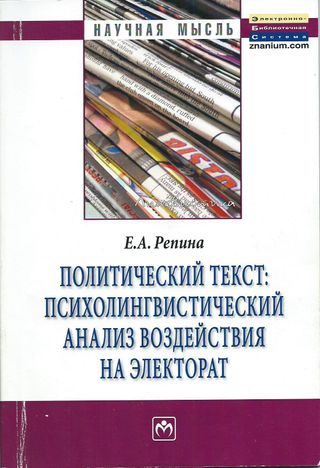?
Политический текст: психолингвистический анализ воздействия на электорат.
The monograph represents the analysis of Russian political texts of the 90-s of the last century. It is based on a scientific research, which was conducted in the framework of psycholinguistics, as well as a communicative approach, and includes the psychological analysis of speech influence and the analysis of linguistic means of such impact. We have employed a complex psycholinguistic approach to the analysis of political texts, which involves mutual verification of the data obtained by linguistic analysis and psycholinguistic experiment. The book is intended for political and public figures, political consultants and employees of the political apparatus of parties and social movements. It can be also used by students who receive education in the field of political science, journalism, public relations, law, philology and psychology.
